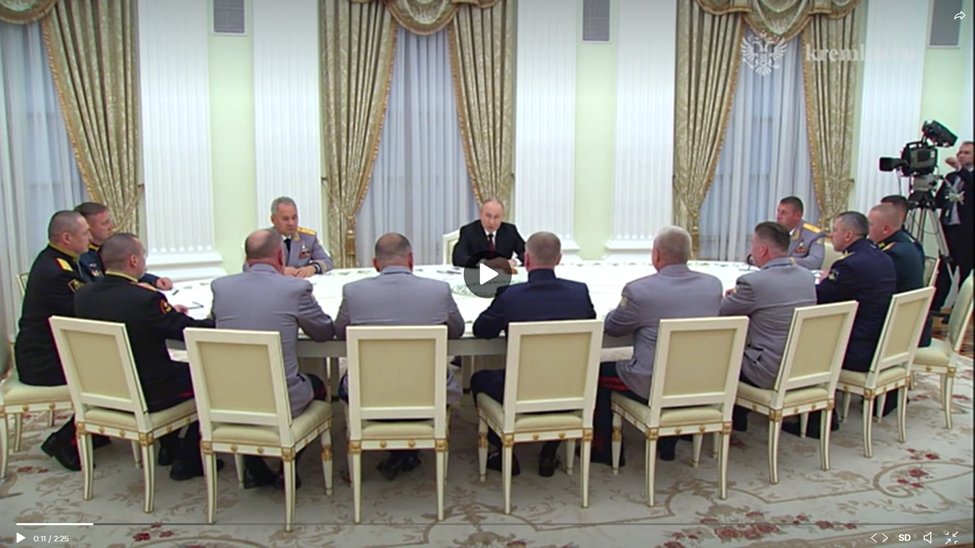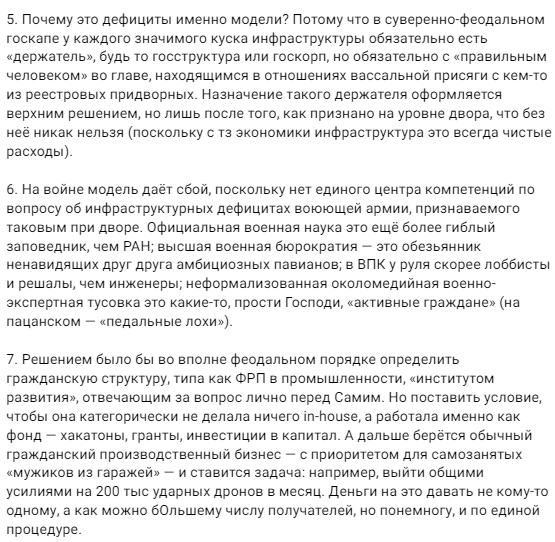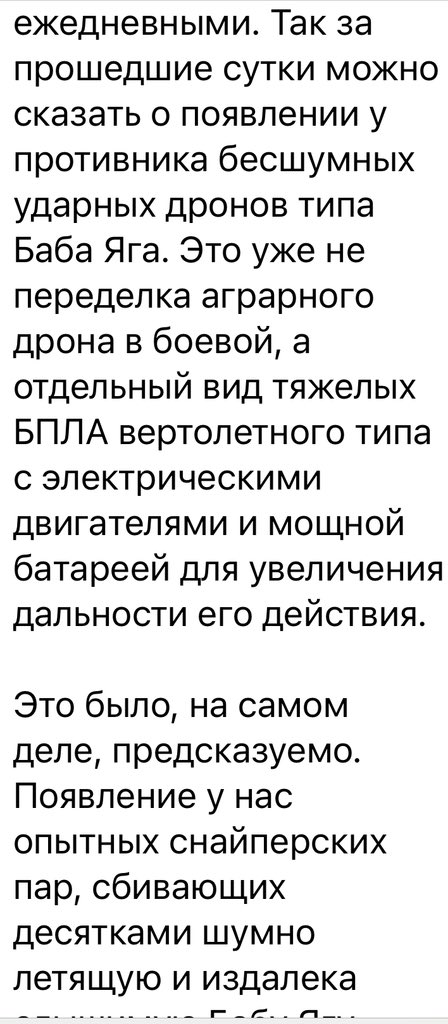1/ One of the more relevant relationships to watch in the coming months will be between the incoming Defense Minister Belousov, the re-appointed Prime Minister Mishustin, Deputy Prime Minister Chernyshenko and the Minister of Digital Development Shadaev. All four are...




https://twitter.com/sambendett/status/1789753655727370685


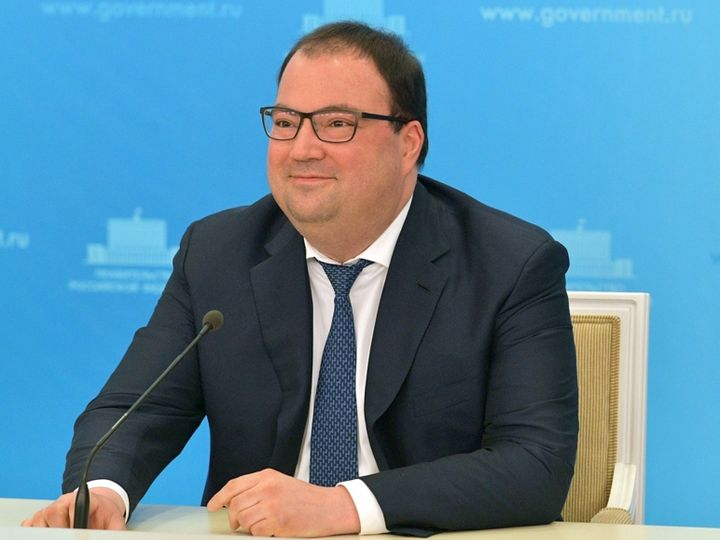
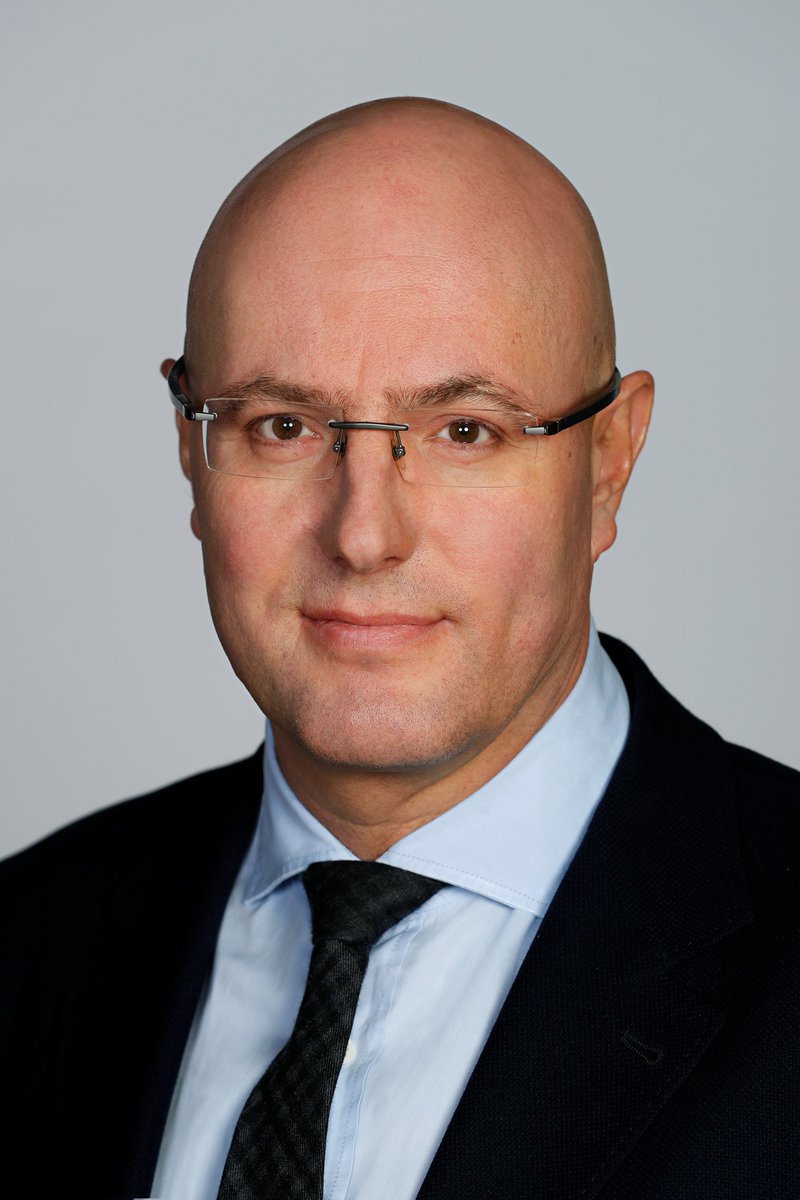
2/ ...part of Russia's efforts to develop domestic high-tech ecosystem in the larger sense - Mishustin as a government bureaucrat with ICT background, Belousov as high-tech researcher at the Soviet and later Russian Academy of Sciences and a minister who promoted UAV/drone...
3/...RDT&E, and both Chernyshenko and Shadaev responsible for fast-tracking Russia's AI and digital developments. All four are civilians who had/still have a massive an uphill battle to implement the ICT and high-tech developments in the midst of war, sanctions, and...
4/...massively underdeveloped domestic high-tech sectors grown reliant on imported technologies. This does not mean that these four ministers will always see eye to eye - but with Putin seeking "innovation in the military" as one of the reasons for Shoigu's ouster... 

5/... the fact that these four have similar backgrounds - coming up the government ranks as Russia's larger scientific and technical communities were switching from Soviet to Russian operational models - "may" make certain developments "easier."
6/ In the end, all four are part of the same Kremlin mission that does not change when it comes to the ongoing Ukraine invasion, along with import substitution and technological sovereignty drives - but the emphasis on Belousov as a civilian driving innovation will be key.
7/ Finally, their policies/results will continue to depend on the work of the larger government/Kremlin apparatus and resource allocations that are governed by many ministers who remain at their jobs, with own and larger agendas in tow.
8/ Its also important to point out that these four civilian ministers have more in common with each other than with the Russian MOD - which may or may not affect their progress as Putin will demand "innovation" from Belousov.
10/ It was pointed out to me that Shadaev is at odds with the MOD (point #8), and that Chernyshenko no longer controls the digitalization portfolio, which will be managed by Grygorenko - but the overall points about Belousov and other civilian gov ministers working on "innovation" still stand.
11/ An example of the difficulties that Belousov (and other ministers) will face with promoting domestic innovation - here he is telling Putin how much domestic UAV industry depends on imported technology - up to 95% in some cases.
12/ A few more points about "innovation in the MOD" - in the past 2.5 years of war, Russian military is emphasizing innovation in UAV/robotics, #AI as a decision-making/data analysis tool, and improvements in artillery/EW forces/technologies. At this point, Belousov...
13/...has an understanding of the larger picture that includes overall difficulties of launching domestic UAV sector practically from scratch (point #11), and understands an uphill battle facing the domestic high-tech sector in general. Described as a competent bureaucrat...
14/...who believes the importance of the military-industrial sector as a major driver of the overall Russian economy, Belousov's job in "opening up the MOD to innovation" will involve extensive cooperation with the civilian, non-military high-tech efforts, something that...
15/...was already emphasized by MOD officials and Chernyshenko since 2020, especially in #AI R&D. According to Russian commentary, Belousov's job will be to manage growing defense budgets, potentially streamlining certain efforts while maintaining spending in others. Yet...
16/...the real question is how open is the Russian MOD to innovation, considering that many innovative and rapid solutions in this war came not from within the MOD structures, but from the volunteer and start-up communities that are developing tech right at the front. And...
17/...many such efforts have openly complained about the inability of/lack of interest from the larger MOD in such solutions that can potentially have an impact in combat. Belousov, together with other ministers such as Denis Manturov who have an understanding of the...
18/ ...domestic R&D ecosystem, is tasked with "making the MOD absolutely open to innovation and to the introduction of advanced ideas" - but that effort today runs into a massive rock called Rostec, Russia's biggest defense-industrial conglomerate. Today, Rostec's positions...
19/...in this new government are strengthened via appointment of ministers who are allies of the company. So Belusov, Mishustin, Grygorenko, Chernyshenko, Shadaev and Manturov (and others) have to contend with Rostec's needs and wishes alongside actually trying to innovate...
20/...while obviously paying attention to Rostec's needs, positions, investments and influence across the entire MOD. There is much more to consider - this thread centered on the "innovation" question that obviously depends on a myriad of other factors. So stay tuned.
• • •
Missing some Tweet in this thread? You can try to
force a refresh



